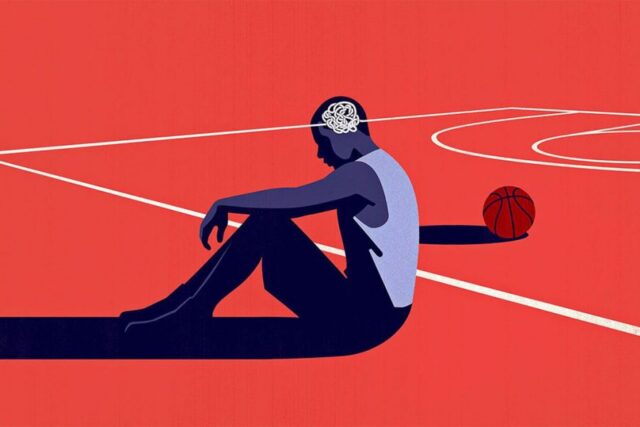Sports and physical activity have been traditionally related to certain physical benefits, including gains in cardiovascular advantages, muscular strength, and also increased endurance. The positive impact of sports on mental health is just as high and has recently started to gain huge attention. Participation in sports can yield mental health advantages associated with reduced levels of stress and anxiety, improved conditions of mood, enhanced cognitive functioning, and social networking. On the other side, the pressures of competitive sport do pose a challenge to mental well-being, which calls for a balanced approach.
Mental Health Benefits of Sports Participation
Lowers Stress and Anxiety: As has already been pointed out earlier, exercise through sports and physical activities works in the way of promoting endorphins—self-produced chemicals that enhance moods. P articipating regularly in sports can decrease the levels of a person’s stress hormone called cortisol and boost the feelings of relaxation.
Enhanced Mood and Mental Well-Being: Sport has been known to treat symptoms of depression and better the mood. Physical activity triggers the production of neurotransmitters, such as serotonin and dopamine, linked to states of happiness and well-being. It is at this time that the “runner’s high” enables one to pass through a state of euphoria during lengthy exercises.
Improved Cognitive Function: Regular participation in sports can enhance cognitive functions such as memory and attention, and problem-solving skills. Exercise boosts blood flow to the brain, which stimulates it to develop new neurons. These neurons develop at a very high quality, especially in organisms with memory and learning capacities. These benefits, therefore, accrue not only to the young athletes but extend to old people as well.
Social skills and connections development: Sporting activities offer a way to engage in socialization, cooperation, and the development of social skills. Participation in a team builds up a feeling of belongingness and solidarity, which is important for mental well-being. The social support derived from other team members, coaches, and peer groups allays challenges by giving the individuals security to face adversity and get ahead with resilience.
Mental Health Benefits: Success in sports can make a person feel good about themselves through self-confidence, self-esteem, and satisfaction from achieving set goals or mastering certain skills. Overcoming challenges and tackling setbacks in sports can teach invaluable life lessons on perseverance, discipline, and goal setting, and in so doing, contributes to a positive self-image, a sense of accomplishment in meeting goals.
Mental Health Challenges in Competitive Sports
While sports generally have positive effects on mental health, the competitive nature of sports may also be part of the problem. Hence, a lot of stress, pressure, and mental health challenges can be put on athletes at a high level of competition. For example:
Performance Anxiety and Pressure: Many a time, athletes face immense pressure to perform that may create performance anxiety. The increased stress and anxiety levels come from fears of failure, expectations put on them by the coaches to succeed, and the striving for success. Such pressure can make it very difficult for an athlete to manage their mental and general well-being.
Risk of Burnout and Overtraining: There is a very high likelihood that heavy training regimes, together with insufficient rest periods, and the endless struggle with peak performance, will end up in overtraining syndrome and burnout. Burnout is defined by symptoms of physical and emotional exhaustion, reduced performance, loss of motivation, and other factors affecting an athlete’s mental health.
Injury and Mental Health: Sports injuries are common and include significant psychological impacts on athletes. Injuries mostly lead to frustration, sadness, and anxious moments about their future in athletic careers. Recovery from an injury can be long and grueling, thus affecting an athlete’s mental health and self-esteem during rehabilitation. Some athletes may also experience post-injury depression or fear of re-injury.
In fact, it is in a way related to eating disorders and different body image concerns that athletes tend to face during their professional life. Eating Disorders and Body Image Problems: In some games, especially with weight categories or aesthetic evaluation, there is a possibility of the players developing eating disorders, disorders of body image, and a bad relationship with feeding. Pressures imposed on athletes in regard to maintaining a certain physique or body weight can easily alter eating habits and self-perception, contributing to further health problems.
Ways of promoting mental health in sports
Mental Health Education and Awareness: Increased awareness is required with regard to the mental health status of athletes to help reduce the stigmatization that may prevent the athletes from seeking help whenever the need arises. The provision of resources and implementation of strategies for athletes to understand and address their mental health concerns should be steered by the coaches, trainers, and sports organizations.
It implies including mental skills training, which provides the athlete with the opportunity for mindfulness, relaxation techniques, and visualization that reduce stress and improve the level of concentration and elevate the mental toughness in athletic programs. The sports psychologists will be of aid to the athletes in scheming the strategies to surmount the pressure and hence construct a positive mentality.
Balance and Restoration: Encouraging balance among training, competition, and recovery is critical for preventing burnout and assisting in mental well-being. Athletes should be allowed to rest and recover in enough time, and coaches should stress the importance of a healthy working-life balance.
Establish a Nurturing Environment: The environment in sports that is supportive, positive, and inclusive can be a great promoter of mental well-being among the athletes. All those working with athletes, such as coaches, teammates, and sport organizations, should foster relationships and practices where mutual support, empathy, and an advisable open line of communication could be imperative with regard to talking about challenges related to the athletes’ mental health, together with how they would go about attaining help.
Professional Support: Access to mental health professionals must be provided for the athletes through sports psychologists, counsellors, and therapists to aid in the coping process. These experts will help athletes with guidance, support, and strategies of intervention into the several mental issues of difficulties concerned with sports.
Conclusion
Sports deeply impact an individual’s mind and usually have benefits of lowering stress, boosting mood, enhancing cognitive functions, and acting as a social support tool. Competitive pressure in games may also bring forth mental health challenges in athletes. Sports organizations, being bold in their approach to awareness, education, and support, should use their programs to place a positive environment regarding mental health and well-being that assures athletes of the many benefits to be gained from sports participation, proportionate to managing the associated risks.








